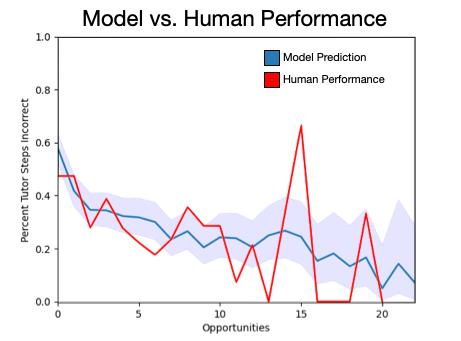Predicting Effects of HPO Interventions with Socio-Cognitive Agents that Leverage Individual Residuals (TAILOR)
Human performance optimization (HPO) is centered around designing tools and interventions that increase human performance. Typically, A/B experiments are used to evaluate alternative HPO interventions to determine which yield the best performance. Unfortunately, A/B experiments are time consuming and costly to run. Further, each new intervention requires an additional A/B experiment to evaluate it, which means that it is often feasible to only evaluate a few intervetions. To overcome these issues, we exploring the use of computational models of humans—or computer models that receive the same stimuli as human A/B experiment participants and then make the same decisions they do—to simulate A/B experiments and support reasoning about about hypothetical and counterfactual HPO interventions. Additionally, we are also exploring how data about specific individuals can be leveraged to create tuned computational models that better approximate and predict the behavior of specific individuals they were tuned to.
Here is an example of a prediction form our model for a fractions tutoring system HPO intervention (see [MacLellan, Stowers, and Brady, 2020][ACS 2020] for more information):

Related Publications
Christopher J. MacLellan, Kimberly Stowers, Lisa Brady (2023). Evaluating Alternative Training Interventions Using Personalized Computational Models of Learning. Advances in Cognitive Systems.
Kimberly Stowers, Lisa Brady, Christopher J. MacLellan, Ryan Wohleber, Eduardo Salas (2021). Improving Teamwork Competencies in Human-Machine Teams: Perspectives from Team Science. Frontiers in Psychology.
Christopher J. MacLellan, Kimberly Stowers, Lisa Brady (2020). Optimizing Human Performance using Individualized Computational Models of Learning. Proceedings of the Eighth Annual Conference on Advances in Cognitive Systems.
